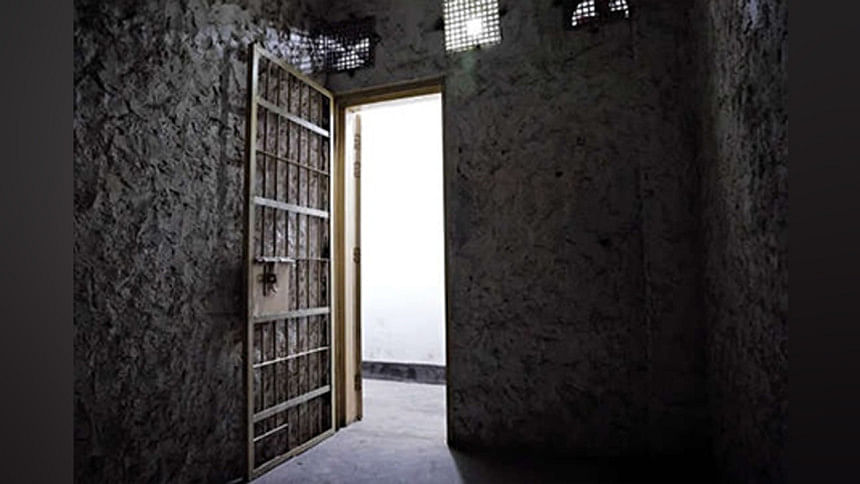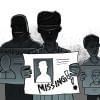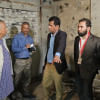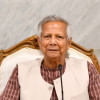Aynaghar: what happened to those still missing?

With three of the secret detention centres finally unveiled, the families of the forcibly disappeared are faced with a difficult reality -- the loved ones they had been waiting for years are not there.
Year after year, as the families took to the streets again and again during the height of Sheikh Hasina's government's repression, as they faced the police and lived under strict surveillance, most of them held one iron-clad belief -- their family members were inside one of the many secret detention centres, imprisoned but alive.
Why is that man (pointing to a man in the room) saying my father is dead? We still don't know… maybe he is somewhere else? God knows. How did my father stay in that cell? That cell is too tiny. How did he sleep?
The alternative was a far worse finality.
Sitting inside a dark seminar room at the Jatiya Press Club yesterday, the families watched a virtual tour of three secret detention centres that were inspected by Chief Adviser Dr Muhammad Yunus on Wednesday.
The photos displayed were taken by the team at Netra News.
As the cameras and crowds cleared after the press conference, the families sat in a daze. Then, one by one, they started breaking down.
Adiba Islam Hridi was two and a half years old when her father, Parvez Hossain, was abducted by Rab and forcibly disappeared.
Parvez, a Jatiyatabadi Chhatra Dal leader from the capital's Bangshal, was picked up from Shahbagh on December 2, 2013. For the past nine years, The Daily Star has documented Hridi demonstrating on the streets, holding a photo of her missing father.
Today, Hridi is a teenager and an eighth grade student. Leaning back against her chair, she sobbed quietly, away from the harsh glare of the cameras. She had just viewed the brutal 2-foot by 4-foot cells of the Taskforce Intelligence Centre, where victims of enforced disappearance were kept by Rab.
"Why is that man (pointing to a man in the room) saying my father is dead? We still don't know… maybe he is somewhere else? God knows," she said. "How did my father stay in that cell? That cell is too tiny. How did he sleep?"
These same families had walked up to the headquarters of the Directorate General of Forces Intelligence (DGFI) the day after Sheikh Hasina's government fell, demanding to be let in so they could rescue their loved ones.
Rab and DGFI need to be disbanded -- there can be no reforms in these forces. We are not looking for just a few token convictions.
The DGFI later issued a statement saying there were no detainees in the Dhaka facility.
The press conference yesterday was organised by Mayer Daak, a platform of families like Hridi's.
"Rab and DGFI need to be disbanded -- there can be no reforms in these forces. We are not looking for just a few token convictions," said Rezaur Rahman Lenin, a human rights researcher.
The wife of forcibly disappeared BNP leader Humayun Parvez, Shahnaz Begum, said, "Will we always be political puppets and used as stunts, or will we actually get justice?"
Monorom Polok, son of photojournalist Shafiqul Islam Kajol, who was forcibly disappeared for months, said changing the colour of uniforms is not enough. "All the officers, from the junior most to the top leadership, can commit enforced disappearances again if ordered to do so by the political government. This has to be reformed," he said.
Tasneem Khalil, editor-in-chief of Netra News, presented the findings of their visit to the detention centres.

 For all latest news, follow The Daily Star's Google News channel.
For all latest news, follow The Daily Star's Google News channel. 








Comments